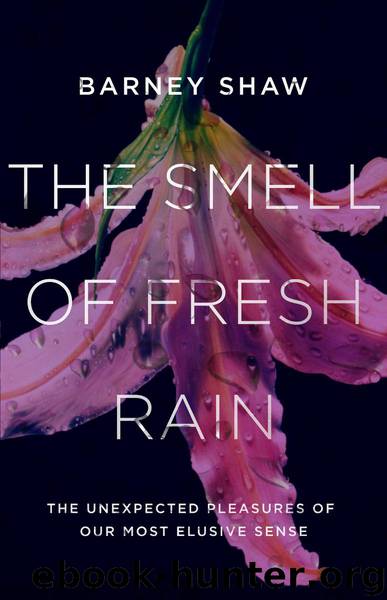The Smell of Fresh Rain by Barney Shaw

Author:Barney Shaw [Barney Shaw]
Language: eng
Format: epub
ISBN: 9781785781148
Publisher: Icon Books Ltd
Published: 2017-05-10T04:00:00+00:00
Ironically, the stench of the Thames was in part a result of improving sanitation. Until the early 19th century, the effluent of London went largely into cesspools. The Thames, though mildly polluted since Roman times, was still clean enough at the beginning of the century for salmon to be caught plentifully in central London. Lord Byron swam in the stretch of river just downstream from Parliament. Fifty years later, swimming was out of the question. The flushing lavatory, which first appeared in London around 1810, had become increasingly popular and was rendered practically compulsory in 1848 when the use of cesspools was forbidden. The Thames then received directly that which had previously been deposited in countless cesspools. To deal with the sewage problem, the Metropolitan Board of Works was set up in 1835, but its powers were inadequate and nothing effective was done.
Then on 30 June, members of a House of Commons committee suddenly rushed out of their room in the greatest haste and confusion, ‘foremost among them,’ reported The Times, ‘being the Chancellor of the Exchequer [Disraeli], who, with a mass of papers in one hand and with his pocket handkerchief clutched in the other and applied closely to his nose, hastened in dismay from the pestilential odour …; Mr Gladstone also paid particular attention to his nose.’ That settled matters. Great men, whose laissez-faire principles had prevented them from interfering in the natural working of London life – including a succession of epidemics of cholera – could not stand unflinching against so personal an attack as the Great Stink. They rushed a Bill through Parliament to give the Metropolitan Board of Works the powers that it needed to abate the nuisance. Within seven years London was provided with 82 miles of sewers, which intercepted all the sewage flowing into the Thames and redirected it to pumping stations well to the east of London, where it was discharged on the ebb tide.
The Great Stink represented something of a watershed between the ancient world, which accepted stenches as a fact of life, and the modern world of sanitation, deodorising and public hygiene. You might have supposed that smells have been a constant throughout history, that roses and dung smelled the same to an ancient Roman as to us today. No doubt so, but the significance of smells has changed over time. As markers of health, social standing and religious orthodoxy smells have changed character.
The city had since ancient times accepted as natural some smells that we would today be offended by. Horses and donkeys were the means of transport, and their dung was a fact of street life. Milk was provided by cows and goats kept in ordinary homes. Without chimneys to draw smoke up and away, smoke from domestic fires lingered in the houses and streets. Some urban smells, however, were less readily accepted. Two professions were particular stinkers from the earliest times. Ancient laundries used a range of pungent substances to degrease and clean the fabrics – notably
Download
This site does not store any files on its server. We only index and link to content provided by other sites. Please contact the content providers to delete copyright contents if any and email us, we'll remove relevant links or contents immediately.
Sapiens: A Brief History of Humankind by Yuval Noah Harari(14389)
The Tidewater Tales by John Barth(12659)
Mastermind: How to Think Like Sherlock Holmes by Maria Konnikova(7342)
The Thirst by Nesbo Jo(6943)
Do No Harm Stories of Life, Death and Brain Surgery by Henry Marsh(6941)
Why We Sleep: Unlocking the Power of Sleep and Dreams by Matthew Walker(6722)
Life 3.0: Being Human in the Age of Artificial Intelligence by Tegmark Max(5557)
Sapiens by Yuval Noah Harari(5370)
The Body: A Guide for Occupants by Bill Bryson(5096)
The Longevity Diet by Valter Longo(5062)
The Rules Do Not Apply by Ariel Levy(4967)
The Immortal Life of Henrietta Lacks by Rebecca Skloot(4587)
Animal Frequency by Melissa Alvarez(4470)
Why We Sleep by Matthew Walker(4444)
The Hacking of the American Mind by Robert H. Lustig(4381)
Yoga Anatomy by Kaminoff Leslie(4363)
All Creatures Great and Small by James Herriot(4320)
Double Down (Diary of a Wimpy Kid Book 11) by Jeff Kinney(4268)
Embedded Programming with Modern C++ Cookbook by Igor Viarheichyk(4179)
